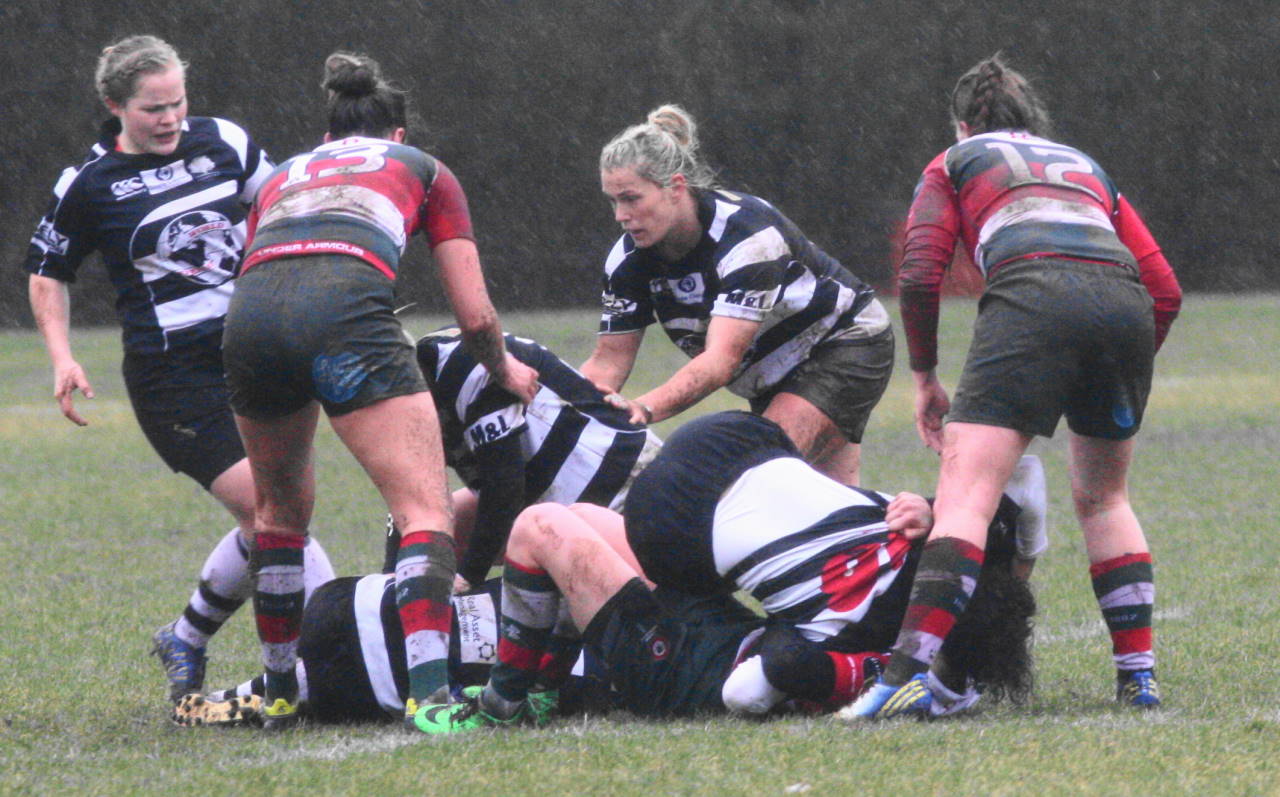The quadrennial laws review process has kicked off with technical experts beginning the process of critiquing the game’s law book following commentary and feedback submitted by unions.
Every four years, the governing body runs a health-check on the laws of the game with a view to ensuring the enhancement of player welfare, the maximisation of enjoyment for players and fans, while making sure the sport can continue to develop at all levels around the world.
During two days of productive analysis and discussion in London, the expert Law Representation Group (LRG) critiqued feedback in order to make recommendations for the Rugby Committee to consider at its next meeting in September. Truly representative, the LRG is made up of coaches, players, referees, medics and union delegates.
Considerations included reinforcing of the application of existing law, edits or re-writes of law and the introduction of new laws deemed appropriate for local trial. The process could culminate in law amendments within the next Rugby World Cup cycle but no changes can be made prior to RWC 2015 in England.
The scrum and breakdown was a particular area of focus with the group agreeing:
- Scrum: With the crouch-bind-set engagement sequence proving successful in reducing scrum injuries, the LRG has recommended that the specialist scrum steering group reconvenes to consider strategies to improve scrum duration and completion rates
- Breakdown: The LRG will further consider proposals regarding the tackle, ruck and maul with a view to maintaining a fair contest for possession while also enhancing player welfare
LRG and Rugby Committee Chairman John Jeffrey said: “World Rugby is committed to continual review and assessment of the laws of the game to ensure that the game is enjoyable to watch and play and is as safe to play as possible at all levels, from the elite, professional tier right down to community and youth rugby.
“This important process occurs after every Rugby World Cup and is an opportunity to take stock, review the laws, drawing on expert input and make changes where needed with those who play and support the game and ongoing prosperity of the sport in mind.
“It was great to see our unions and associations making such a strong contribution, while the level of expertise and discussion from our expert group when considering the submissions was very impressive. We have lots to consider and some interesting proposals to develop.”
New Zealand representative and All Blacks head coach Steve Hansen added: “We all have a responsibility to ensure that rugby is as simple, enjoyable and safe to play as possible. It was a fascinating review and I look forward to ongoing involvement in this important process.”
The previous cycle saw the revision of the scrum engagement sequence on player welfare grounds following extensive evaluation and trials. The crouch-bind-set sequence has reduced forces on engagement by up to 40 per cent at the elite level.
The LRG comprises: Ben Whittaker (ARU), Pablo Bouza (UAR), Rob Andrew (RFU), Didier Retiere (FFR), David Nucifora (IRFU), Steve Hansen (NZR)*, Giulio de Santis (FIR), Rachael Burford (Rugby Athletes’ Commission), Andre Watson (SARU), Chris Paterson (SRU ambassador) and Nigel Whitehouse (WRU)**.
*Steve Hansen replaced Dave Rennie, who was unavailable due to competition commitments
** Nigel Whitehouse replaced Ryan Jones, who was unavailable due to competition commitments
World Rugby attendees: Brett Gosper (Chief Executive), Joël Jutge (High Performance Match Officials Manager) and Mark Harrington (Head of Technical Services).
Discussions around law review are based on the following agreed principles:
1. Player welfare, especially concussion, is the number-one priority
2. The laws must allow for a fair contest for possession, especially in the contact area, in general play and when play is restarted at scrums, lineouts and kick-offs
3. The game remains a sport for all shapes and sizes, for men and women, and for boys and girls
4. The unique identities of the game must be maintained, including the scrum, lineout, ruck, maul, tackle, kick-off and restarts
5. Any changes must promote enjoyment for participants and entertainment for spectators and must be in line with World Rugby’s core values of passion, respect, integrity, discipline and solidarity
6. The laws must be applicable by match officials
7. The game should be as easy to understand as possible for players, coaches, match officials and spectators
Law review cycle 2015-18
1. Early 2015 – Call for suggested amendments
2. Mid-2015 – LRG reviews suggestions made by unions/regional associations
3. September 2015 – Rugby Committee meets to discuss proposals
4. Early 2016 – Initial trials (if appropriate) are conducted in relevant competitions
5. Mid-2016 – Any initial trials are reviewed by LRG
6. October 2016 – Any initial trials are reviewed by Rugby Committee
7. November 2016 – Global trials (if appropriate) are approved by World Rugby Council
8. January 2017 – Any such global trials start in southern hemisphere and August 2017 in northern hemisphere
9. June 2018 – Any global trials are reviewed by LRG
10. October 2018 – Recommendations are made to Rugby Committee
11. November 2018 – Council confirms law amendments (if appropriate) at a special meeting and the law is changed accordingly
Photo above shows Rachael Burford playing for Thurrock T-Birds









